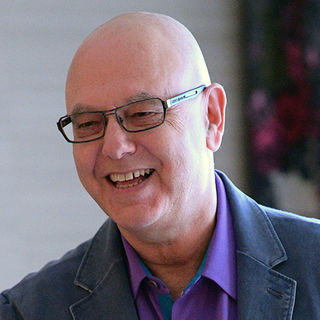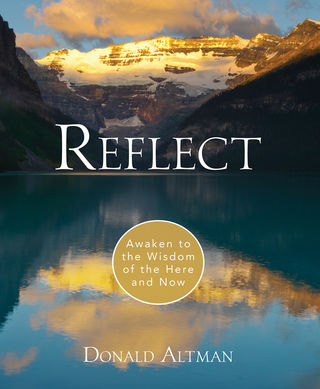
Sometimes we focus too much on goals. Especially in the digital age, the antidote may be taking the time for a different way of focusing.
What do you consider important for people to reflect on?
Reflection is unlike the analytical thought we typically use when trying to solve or fix problems. Reflection is a deep, penetrating awareness. Its purpose is to help us go beyond traditional forms of thinking. A reflection practice often brings fresh insights, creative solutions, and new awareness to relationships and your work. So it’s not so much what you reflect on, but how you bring a fresh and abiding awareness to any area of your life that matters.
Is there a single goal of reflection?
I’m glad you brought the idea of goals into the conversation. We’re a goal-fixated culture. Everything has to be better, bigger, faster—even mindfulness. And to that end we’ve distorted mindfulness so we’re judged as either succeeding or failing at reducing stress and increasing productivity. Unfortunately, this produces a watered down and even a self-absorbed approach to living. What we need is a non-goal mindfulness that sees everyone as connected and that grows our relationships and compassion. Instead of turning people into better machines, what would it be like to create kinder, more humane and more compassionate work environments? That’s what needs addressing, and that’s what true reflection or an authentic mindfulness practice delivers.
Does it matter whether I engage in reflection instrumentally, to achieve some specific goal, such as stress reduction, or just to appreciate what exists?
A reflection practice naturally accomplishes both of these things. As for stress, it is important to know is that it’s not the stress that harms you but your perception of stress. Reflection fundamentally changes your relationship to stress because you learn how not to grab onto reactive states of mind. In addition, reflection also encourages more creative thinking—known in psychology as response flexibility—so it improves your capacity for problem solving. That’s how reflection buffers you from the harmful effects of stress. As for appreciating the moment, reflection is very centered on participating in the here and now. The more you reflect, the more you’ll find yourself experiencing a deep sense of presence, appreciation, and awe for whatever is before you. It’s like a doorway to the sacred and sublime has opened up.
How does reflecting relate to mindfulness?
To reflect is to experience the full expression of mindfulness, because this is a path of self-evolution and liberation. This is liberation from illusion and suffering that can only be revealed by penetrating the nature of mind, of ego, of impermanence, of attachment and avoidance. I entered the monastery because of painful patterns that kept repeating in my life. What I’ve distilled from years of sitting meditation can help anyone optimize the brain’s capacity for attaining compassion, peace, joy, and loving relationships. The readings in Reflect are designed to break through old, toxic patterns and get you beyond unproductive thinking. This is a more direct path to gaining clarity without sitting in a monastery.
Besides, I don’t believe that going on long retreats or sitting for hours is for everyone. There’s an old saying that says, “there are many paths up the mountain.” I wanted to offer something that captured the original meaning of mindfulness—which is to self–remember and self-recollect—while also providing an evolved and highly accessible mindfulness that works for us in the 21st century.
Is there one way of practicing reflection that is desirable for everyone?
Yes, I think so. I designed Reflect to fit with my favorite new mantra: Pause, Reflect, Repeat. That’s because when you pause and reflect inwardly throughout the day, you more effectively rewire the brain. You can sit with a reading and reflect on it for five or 10 minutes. But I believe we need a new paradigm for activating and strengthening our brain’s reflect module. We’re all multitasking and so many things are grabbing our attention. A short reflection here and there breaks through the monotony and trance state that sucks away the joy of feeling alive. By pausing to enter reflection, we touch the true presence that is our birthright and natural, innate state of being.
What makes reflection particularly important for modern times?
We are meant to be in-joy and awakened, not lulled to sleep in our precious moments. Deep down I think people are lonely and are craving real connection. You might have hundreds of online friends, and that’s great. But there’s a need for personal intimacy that we all need, that is part of our humanity. The thing is this: You have to take action and work for it. My own Burmese teacher in the monastery once said to me, “Mindfulness is free; we are born with it.” But that doesn’t mean you don’t need to exercise reflection to enjoy its life-affirming benefits. Reflection helps us to be fearless in our pursuit of connection.
How does a person know when it is desirable to engage in reflection?
Once you start a reflect practice, you’ll probably wonder how you ever got along without it. It’s like entering another world or gaining a superpower. Once you have a practice it becomes almost effortless, like breathing. It becomes part of your DNA, and like breathing it keeps you alive and vital. You bring awareness to everything one way or another, but when you reflect you bring a deeper sensitivity and openness to each moment, each interaction you have—with yourself and others.
Your book consists of a number of statements to reflect on. Do they all have equal power to bring about a desirable state of mind?
Yes, they do. There’s no “more” or “less” here when it comes to the multidimensional awareness that reflection nurtures. Everything you reflect upon has the ability to manifest a deep sense of clarity and wisdom.
Your book is divided into numerous topics of reflection. Is there some ideal sequence of topics of reflection?
There are eight sections in the book. I begin with Simplicity & Peace because that section explores the nature of thoughts and emotions—an important starting point for making friends with the mind. This is something many of us struggle with. The following sections, which include Nature, Relationships, Love, Laughter, Bliss, Transformation and Wisdom, expand further. I’m also a fan of opening up to any page and trusting that you’ll find what you need in that moment. Either approach works well.
What would you consider the single most important message you would like readers to get from Reflect?
I see reflect like a new awareness, coding for maintaining our human connections in the digital age. It will get you out of old ruts and toxic patterns by helping you experience what I like to call gravity-free awareness. I think of this as a kind of spacious, open awareness that doesn’t orbit around the ego, around objects of craving, or around things that we can’t change—all of which are ultimately unsatisfying. When this shift in awareness happens, you will find that you won’t need to take things personally. Once you disarm the ego, there’s nothing left to catch on fire or defend. In fact, the original purpose of mindfulness was to reach our full human potential and bring wisdom and compassion into the world, not for short-term relief or gain. Reflect is all about reclaiming the original essence of mindfulness for contemporary sensibilities.
About THE AUTHOR SPEAKS: Selected authors, in their own words, reveal the story behind the story. Authors are featured thanks to promotional placement by their publishing houses.
To purchase this book, visit:





